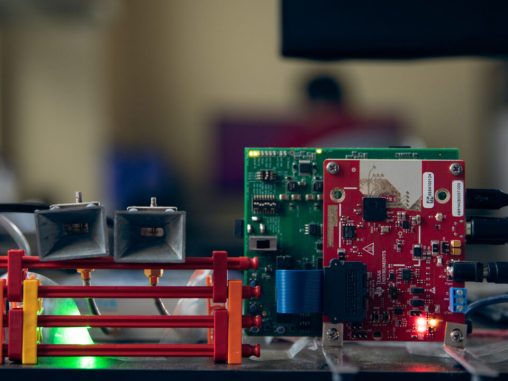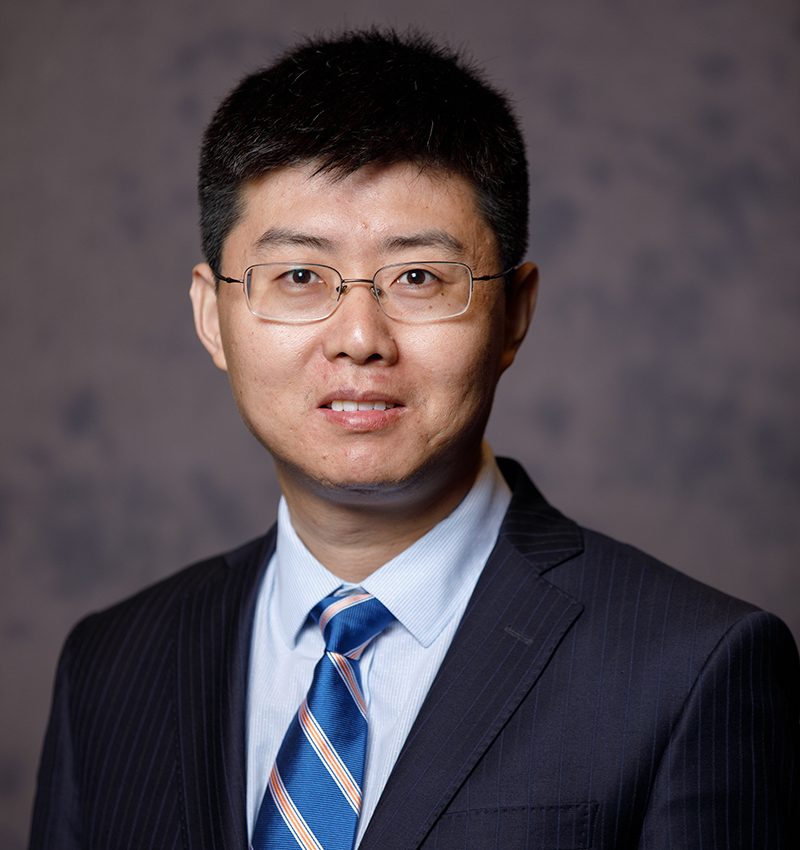Dr. Shunqiao Sun
Assistant Professor
Contact
- 3009 NERC
- phone (205) 348-0508
- Faculty Website
Education
- Ph.D., Electrical and Computer Engineering, Rutgers University, 2016
- M.S., Electrical Engineering, Fudan University, 2011
- B.S., Electrical Engineering, Southern Yangtze University, 2004
Shunqiao Sun received his Ph.D. degree in electrical and computer engineering from Rutgers in New Brunswick, New Jersey, in January 2016. He is currently a tenure-track assistant professor after joining the Department of Electrical and Computer Engineering at The University of Alabama in August 2019. From 2016-2019, he was with the radar core team of Aptiv, Technical Center Malibu, California, where he has worked on advanced radar signal processing and machine learning algorithms for self-driving vehicles and lead the development of direction-of-arrival estimation techniques for next-generation short-range radar sensor which has been used in over 120-million automotive radar units. His research interests lie at the interface of statistical and sparse signal processing with mathematical optimizations, automotive radar, MIMO radar, machine learning, and smart sensing for autonomous vehicles.
Dr. Sun received the U.S. National Science Foundation (NSF) CAREER Award (2024) and CRII Award (2022). He received the 2016 IEEE Aerospace and Electronics Systems Society (AESS) Robert T. Hill Best Dissertation Award for his thesis “MIMO radar with Sparse Sensing”. He authored a paper that won the Best Student Paper Award at 2020 IEEE Sensor Array and Multichannel Signal Processing Workshop (SAM). He is an elected member of IEEE Sensor Array and Multichannel (SAM) Technical Committee (2024-2026). He is Vice Chair of IEEE Signal Processing Society (SPS) Autonomous Systems Initiative (ASI) (2023-2024). He has co-organized the 1st and 2nd Workshop on Signal Processing for Autonomous Systems (SPAS) at International Conference on Acoustics, Speech, and Signal Processing (ICASSP) 2023 in Rhodes, Greece and ICASSP 2024 in Seoul, Korea, respectively. He has co-organized over a dozen special sessions on automotive radar signal processing, machine learning and sparse arrays at IEEE SPS and AESS flagship conferences. He is an Associate Editor of IEEE Signal Processing Letters and IEEE Open Journal of Signal Processing. He is a Senior Member of IEEE.
Affiliated Areas
Electrical and Computer Engineering
Selected Publications
- S. Sun, Y. Hu, K. V. Mishra, and A. P. Petropulu, “Widely separated MIMO radar using matrix completion,” IEEE Transactions on Radar Systems, vol. 2, pp. 180-196, 2024.
- L. Xu, S. Sun, K. V. Mishra and Y. D. Zhang, “Automotive FMCW radar with difference co-chirps,” IEEE Transactions on Aerospace and Electronic Systems, vol. 59, no. 6, pp. 8145-8165, 2023.
- R. Zheng, S. Sun, H. Liu, and T. Wu, “Deep neural networks-enabled vehicle detection using high-resolution automotive radar imaging,” IEEE Transactions on Aerospace and Electronic Systems, vol. 59, no. 5, pp. 4815-4830, 2023.
- S. Sun and Y. D. Zhang, “4D automotive radar sensing for autonomous vehicles: A sparsity oriented approach,” IEEE Journal of Selected Topics in Signal Processing, vol. 15, no. 4, pp. 879-891, 2021. IEEE Signal Processing Society’s top 25 downloaded articles from Sept. 2021 – Sept. 2022 for IEEE Journal of Selected Topics in Signal Processing on IEEE Xplore.
- S. Sun, A. P. Petropulu and H. V. Poor, “MIMO radar for advanced driver-assistance systems and autonomous driving: Advantages and challenges,” IEEE Signal Processing Magazine, vol. 37, no. 4, pp. 98-117, 2020. (Feature Article) IEEE Signal Processing Society’s top 25 downloaded articles from Sept. 2022 – Sept. 2023 for IEEE Signal Processing Magazine on IEEE Xplore.
Awards and Honors
- NSF CAREER Award, National Science Foundation, June 2024
- National Science Foundation (NSF) CRII Award (2022)
- IEEE Aerospace and Electronics Systems Society (AESS) Robert T. Hill Best Dissertation Award (2016)
Dr. Sun's Impact

Innovative UA Research Recognized with NSF CAREER Awards
Four professors at The University of Alabama received one of the National Science Foundation’s most prestigious honors for early-career faculty.
